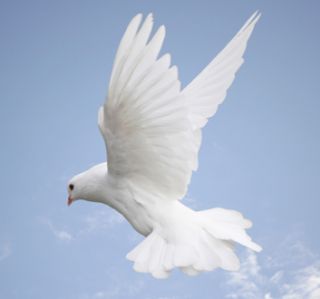Grief
Finding Hope Amid the Tragedy of Flight MH370
The largest international search in history has changed our mythic landscape.
Posted March 24, 2014
As I write, Malaysia's prime minister has just announced that missing flight MH370 crashed in the southern Indian Ocean. This is a time of deep sorrow and grief; in my heart I hear again the cries of Li Le’s mother, whom millions of us heard around the world last week. “My son,” she wailed, “I just want my son back.” Her anguish was palpable, tangible—primal. As a mother, I wept with her and today, I do again. I know I am not alone. Today, in this moment, people all over the world are hurting. We feel the families’ sorrow, pain, and loss. The hope that was held only moments ago has flickered out. But even amid this sorrow and pain, all is not lost. The search and rescue attempt may be coming to an end, but it has been an incredible mirror of some of humanity’s greatest qualities. Something remarkable changed in the global mindset—something with staggering implications for the future—something that can help us find hope in our hour of sorrow. To find it we need but look to our digital landscape.
A few days after the flight’s disappearance, I shared a link to Digital Globe, inviting you to become part of a collaborative effort to find the missing plane. That search went on to become the largest of its kind in aviation history. One of the most remarkable outcomes of the search for the missing Malaysian Airlines flight MH370 is that over 3 million individuals joined the search and rescue efforts via Digital Globe.
Many of us who heard Li Le’s mother’s anguished cries, also heard the woman who spoke after her. She pleaded for “the entire world [to] help us find our lost families and find the MH370 plane.”

In the collaborative response that ensued, it’s as if the “entire world” did indeed arrive on the scene to help find the lost families and missing plane. Our ability to actually participate in the search via Digital Globe showed us that rather than being bystanders to world events, we can now join the action. This is far more than crowdsourced wisdom and we need to expand our lexicon to make room for it. Rather than setting off to solve epic challenges alone, we are joining together—by doing so, we are expanding the heroic domain. Indeed, if there is any consolation to be had in this time of sorrow, it is in the knowledge that the international collaborative effort—online, on the ground, in the air, and on the seas—has been infinitely valuable. In it, we’ve witnessed the “entire world” collaborating on behalf of a noble goal and glimpsed the face of collaborative heroism in action. While we cannot bring back the lost loved ones of flight MH370, through recognizing our collective potential for heroic action we may well advert future catastrophes and simultaneous loss of life.


